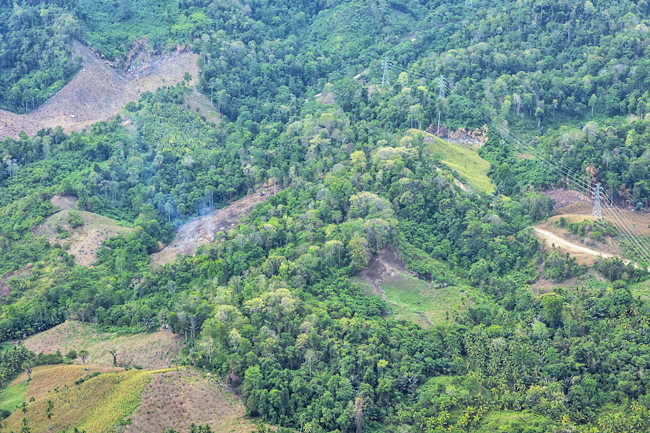JAKARTA (AP) – The South Korean government will reduce subsidies for biomass energy after rising domestic and international criticism of its link to deforestation. Environmental activists generally applauded the reforms but criticised loopholes and slow timelines for phasing out the subsidies.
“While not without caveats, (the) decision by the South Korean government demonstrates that large-scale biomass power has no place in a renewable energy future,” programme lead at South Korea-based non-governmental organisation Solutions for Our Climate Hansae Song said in an e-mail to The Associated Press (AP).
Biomass power, predominantly generated by burning wood, is growing globally as countries accelerate their transition to use cleaner energy. In South Korea, it’s the second-largest source of renewable energy.
South Korea has subsidised biomass energy with millions of dollars for more than a decade via their renewable energy certificates program. In a single recent the government gave approximately USD688 million to support power plants using biomass, according to a press release from South Korea’s Ministry of Trade, Industry and Energy.
Faced with limited domestic forest resources, South Korea’s biomass power industry has structured its business model around importing large volumes of wood pellets at lower prices from forest-rich nations.
In 2023, imports accounted for 82 per cent of the country’s wood pellet demand, making South Korea the world’s third-largest importer of biomass fuels, after the United Kingdom (UK) and Japan. An AP report found that biomass imported from Indonesia was linked to deforestation of natural, intact forest.
“As the (biomass) market expanded, various issues emerged,” the Ministry of Trade, Industry and Energy said in their press release. “Criticisms regarding forest degradation and carbon emissions associated with biomass power generation persist.”
Under the revised policy, South Korea will not support any new biomass power plants.
Subsidies for six existing state-owned plants co-firing coal and biomass will end this year, while the value of renewable energy certificates for three state-owned dedicated biomass plants will be phased down by 2027.
At privately owned plants, subsidies for co-fired biomass from six plants will be phased out over the next decade, while subsidy weightings will be reduced for 12 dedicated biomass plants over the next 15 years. But environmental activists are critical of loopholes in the new policy. Domestically produced wood pellets and chips will still have the same level of support as before, including those co-fired with coal – which experts said could pose a threat to South Korea’s forests.
Power plants under construction or in planning with approved business permits are exempt from the new policy and subject to the phased reduction timelines for existing facilities.
State-owned co-firing facilities currently account for only 10 per cent of South Korea’s biomass power fleet, while the phase-out of most private co-firing will take over a decade to complete under the new policy, said Solutions for Our Climate.
“This extends the life of thermal power plants – many with emissions per unit of energy higher than coal – beyond the Paris Agreement-aligned coal phase-out deadlines,” Song wrote in an e-mail to AP.






